
11 Essential Considerations Before Purchasing an Electric Car
Switching to an electric car is an exciting step towards a greener, more sustainable future. But before making the leap, it’s important to understand the key factors that will shape your decision. To help you make an informed choice, we’ve put together a guide highlighting 11 essential things to know before purchasing an electric vehicle.
1.Charging Infrastructure

One of the first things to consider when buying an electric car is the availability of charging stations. While electric vehicle (EV) networks are expanding rapidly, some areas—especially rural locations—might have fewer charging options. Be sure to check the availability of charging points along your usual routes. Even if you have a home charger, public charging stations might still be necessary for longer trips.
2.Battery Range
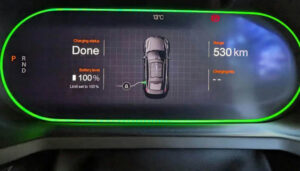
Before deciding on an electric car, it’s important to assess its battery range. Depending on how much you drive each day, a car with a range of 200-350 kilometers could be more than enough for daily city use. However, if you plan to take longer trips, or if your daily commute exceeds 300 kilometers, you might need a car with a larger battery.
The good news is that most EVs on the market today offer a range that covers more than 98% of daily trips in Europe. In fact, the average range of electric cars has improved by 65% in just six years, with some models now reaching 400 kilometers on a single charge.
3.Charging Time
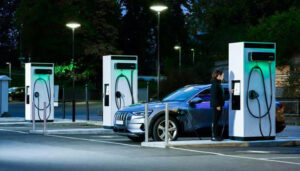
Charging an electric car takes longer than filling up a gas tank, but advances in technology are making this process faster. Charging times vary depending on the charging station and your vehicle’s battery capacity. At public stations, fast-charging points can give you up to 200 km of range in as little as 10 minutes, especially in high-traffic areas like highway service stations.
For home charging, expect longer times: around 9-10 hours for compact cars and up to 12 hours for larger models. If you have a busy lifestyle, make sure to choose a charging solution that fits your routine.
4.Smart Home Integration
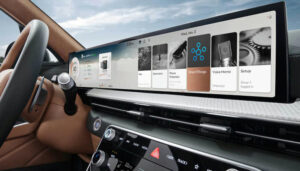
Many modern electric cars can seamlessly integrate with your smart home systems, allowing for greater convenience and efficiency. With home energy management systems, you can schedule your car’s charging during off-peak hours, when electricity is cheaper. Plus, you can monitor and control the charging process remotely using your smartphone, and even optimize energy usage across your entire home.
If you already have solar panels, you can power your car with renewable energy, reducing both your carbon footprint and electricity costs.
5.Government Incentives
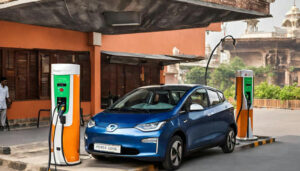
Governments across Europe are offering attractive incentives to make the transition to electric vehicles easier. These can include tax credits, rebates, and reduced registration fees, which can lower the initial cost of an EV. Additionally, some cities offer free access to restricted zones, reducing your commute time and helping improve air quality. Be sure to research the specific incentives available in your area to make the most of these offers.
6.Total Cost of Ownership

While electric cars might have a higher upfront cost compared to gasoline vehicles, their total cost of ownership can be much lower over time. Charging an EV is cheaper than fueling a traditional car, and maintenance costs are also lower since electric vehicles have fewer moving parts.
For example, annual maintenance for an EV averages €182, while for a gasoline car, it’s closer to €314. However, keep in mind that battery replacement is a significant cost, although it’s a less frequent issue than engine repairs.
7.Battery Lifespan
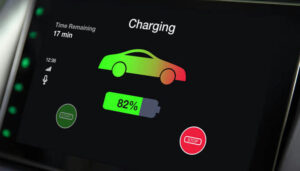
The battery is one of the most expensive components of an electric vehicle, and its lifespan is an important factor to consider. Most EV batteries last between 150,000 and 300,000 kilometers, but their capacity can degrade over time. Be sure to check the warranty offered on the battery and the manufacturer’s policy on replacement. Many brands offer warranties of 8 years or more, and some cover significant capacity loss.
Some vehicles also come with advanced battery management systems that help extend battery life and maintain performance over time.
8.Driving Experience

The driving experience of an electric car is different from that of traditional vehicles. EVs are quieter, offer instant torque for smooth acceleration, and generally provide a more responsive driving experience. Many drivers find this to be one of the most enjoyable aspects of owning an electric car, especially in city traffic.
If you’re considering buying an electric vehicle, we recommend a test drive to see if the driving dynamics and comfort level meet your expectations. Most electric cars also come with advanced safety and driver-assistance features, which can make driving even more enjoyable.
9.Weather Adaptability

The performance of electric vehicles can be affected by climate, particularly in cold environments. Low temperatures can impact battery performance, leading to reduced range. When using an electric vehicle in colder regions, it is a wise decision to choose a model equipped with a more powerful heating system and battery management technology designed to handle cold climates.
Additionally, ensure that the vehicle has a good climate control system capable of quickly heating or cooling the cabin to cope with the harsh cold of winter and the intense heat of summer.
10.Environmental Benefits
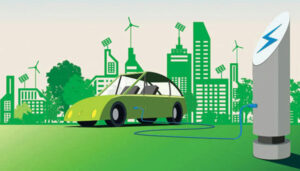
Electric cars have a significantly lower environmental impact than their gasoline counterparts. While the production of electric vehicles, particularly the batteries, does have an environmental footprint, overall CO₂ emissions are much lower over the car’s life cycle. In Europe, electric cars emit up to 77% less CO₂ than gasoline cars, thanks to cleaner energy sources and improvements in battery technology.
As the energy grid continues to decarbonize, the environmental benefits of electric vehicles will only continue to grow.
11.Resale Value

As electric cars become more popular, their resale value is becoming an increasingly important factor to consider. Newer models with longer ranges tend to hold their value better. However, keep in mind that the rapid pace of technological advancements means older models may lose value faster, especially if they don’t have the latest features or a competitive range.
It’s worth researching models that have a good reputation for retaining their value. EV manufacturers are also improving warranties and support, which can help protect your investment in the long term.
